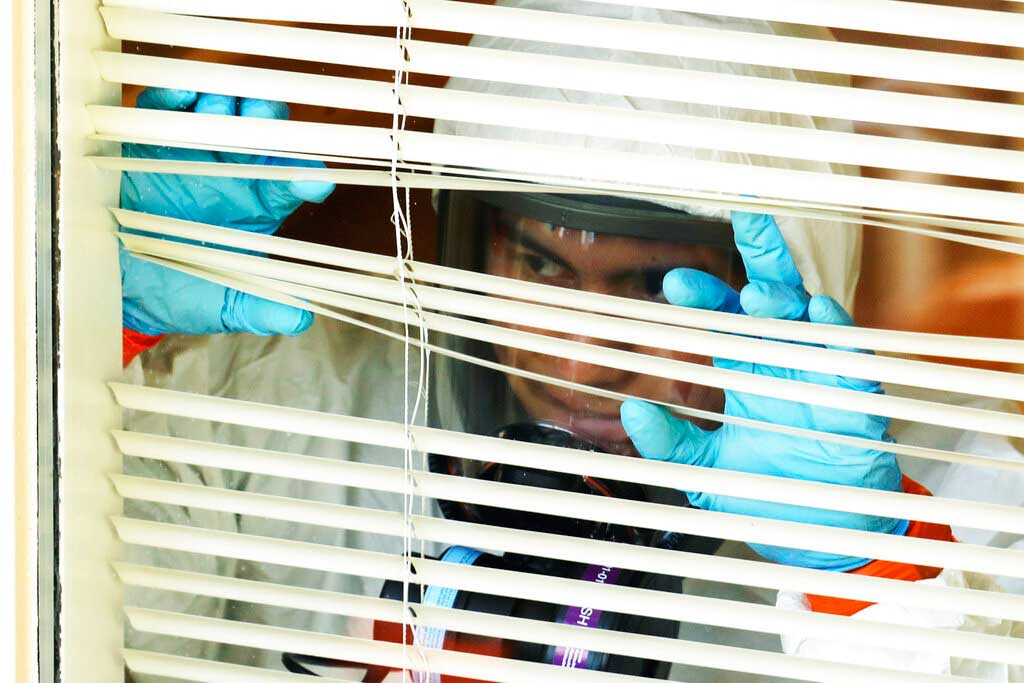The day after colleges across the country suspended classes over fears of the coronavirus, Abigail Lockhart-Calpito, a first-year student from San Antonio, ran across the Harvard campus trying to get answers.
Her lectures were being replaced by online classes. Her residence hall was being cleared out. She, like thousands of others in her shoes, had a million questions: What was going to happen to her financial aid? Where would she stay? What about her credits?
The abrupt disruption of the semester caused widespread concern and a feeling of chaos on campuses across the country.
Administrators saw spring break as a chance to reset the clock in the battle against the coronavirus. One after the other, like dominoes, they announced they were suspending classes and asking students to pack up and go.
Low-income students wondered whether they could afford to go home. International students had questions about their visas, which usually did not permit online learning.
Graduate students worried about the effects on research projects years in the making.
Dance, theatre and music students fretted that after months of rehearsals there would be no performances. Seniors were already mourning their commencement, assuming that it, too, would be canceled, and that the Class of 2020 might be together for the last time.
Some altruistically minded students worried about going home and perhaps unwittingly infecting their older and more vulnerable parents and grandparents should the virus already be present at their schools.
On Wednesday, the closures continued. Gov. Andrew M. Cuomo of New York declared that the state and city university systems would move to distance learning, as did the University of Pennsylvania, several California State campuses, the Claremont Colleges, Iowa state, Georgetown, Pepperdine, Villanova, Notre Dame, Michigan state and Washington University in St Louis, among others.
Infectious disease specialists said that dormitories, with their communal bathrooms as well as dining halls with open buffets, are like cruise ships, with students squeezed together and facing increased risk of infection. Emptying them out, if only partially, is necessary, they said.
Even those on the way to college in autumn felt the impact on Wednesday, as the SAT exam scheduled for Saturday was cancelled in 18 countries and at more than 120 U.S. schools. In many cases, no alternative locations or makeup dates were offered.
Lockhart-Calpito, 19, is on full financial aid, which includes tuition, room and board. Her parents are self-employed, and she had scraped together airfare home for spring break by working two part-time jobs, as a tutor and as an usher and ticket seller. She is going to stay with a family friend instead of her parents, but she worries about wearing out her welcome.
When she moved into her dorm, she enjoyed the luxury of having her own room, she said, and her meals at school were covered.
Now though, she has found that the university so welcoming to students like her had not thought through the consequences of its decisions about the virus for those without means. It felt, she said, “like an eviction notice”.
“Harvard expects us to go home,” she said on Wednesday. “But home for a lot of us is this campus.”
As she went from office to office, officials told her apologetically that they had found out about the orders to shut down normal life on campus at the same time that she had, and so had few answers. Private charities and individuals were responding with offers to provide temporary lodging and financial help, she said.
Tabitha Escalante, 18, a freshman from Ohio, said the rushed order to depart had already been costly for her and her family. She had originally planned to fly home for spring break on Thursday but had to cancel her flight, forfeiting its $250 value, when she got the notification on Tuesday morning. There was no way she would be able to find storage for all her things in two days.
The new plan, she said, was for her mother to take time off from her work as a waitress to drive the 11 hours to Cambridge, Massachusetts, to get her and her belongings.
“We’re living off her tips,” she said of her family. “It was a difficult decision, but honestly we weren’t really left with a choice.”
Harvard officials said they were swamped with requests for financial and logistical help and could not take time to talk in detail about the situation. They noted that Gov. Charlie Baker of Massachusetts had declared a public health emergency on Tuesday, and said that the university had been forced to respond in kind. But they said that any students who were on financial aid and had a “demonstrated need” would be taken care of.
By midday Wednesday, as the pressure built, the university had put out written guidelines for students who receive financial aid, offering to help cover the costs of storing and shipping their belongings. The university said it was stationing staff in dining halls to help with travel booking.










